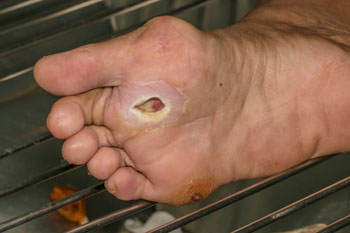
Diabetes can affect every part of your body - including your feet. Those with diabetes are more likely to experience associated health conditions such as peripheral neuropathy and poor circulation. These can lead to a loss of sensation and impaired wound healing in the feet and ankles, so people with diabetes must be extra vigilant when it comes to monitoring and maintaining the health of their feet.
Caring for diabetic feet starts with establishing a good foot care routine. It is important to maintain good foot hygiene by washing the feet daily and drying them thoroughly. Applying a moisturizer following a shower can help prevent dry, cracked heels. When walking around the house or outdoors, avoid walking barefoot, as this can make foot injuries more likely. Instead, wear socks and comfortable, supportive shoes.
Doing a daily foot inspection, which can be done with the help of a mirror, is vital. This practice can help you detect any abnormalities in your feet early on so that they can be treated promptly. Each day, sit down in a chair and check both of your feet for any cuts, scrapes, sores, bruises, blisters, cracks, corns, calluses, swelling, or discoloration. Also, take note of how your feet feel. Is there any pain or discomfort? Burning, stinging, numbness, or itchy sensations? If you notice anything out of the ordinary, it is strongly suggested that you see a podiatrist as soon as possible. A podiatrist can help you by diagnosing and treating any foot problems when they arise, thus maintaining the health of your feet.
